
views
During the Relationship

Give your full commitment to the relationship. Take care of your partner. Consider your partner’s interests, needs and wants in every decision you make. Think of your partner before you think of yourself. Recognize that while a relationship is a two-sided endeavour, your kindness towards your partner will pay off in the long term. Your thoughtfulness, kindness and compassion will make you unforgettable. If the relationship should end up not working out, the chances of your partner considering you “the one that got away” is almost a given. The downside of giving without expecting anything in return is that it can eventually wear on you. You may become disillusioned and feel like you aren’t good enough to be a part of the relationship. Once these feelings start to be constant, it may be time to end the relationship. However, your actions and kindness before ending the relationship will not be forgotten and will still make you “the one that got away."

Show interest in your partner’s interests. When your partner talks about something that is of interest to them, show interest in return. This doesn’t mean you have to have the same level of interest in the subject as your partner, rather you’re showing you care by paying attention to something that is important to your partner. If your partner feels something is important enough to talk about, you should consider it important to pay attention. If you are aware of a specific subject your partner views as important (for example, classic cars), make the effort to point out and notice that subject to your partner. In the classic car example, if you are on a drive with your partner and notice a classic car, point it out and ask an interesting question about it.

Learn to see something positive in everything your partner does. Even if you are mad at your partner, try to avoid negative thoughts that may make you even more angry. Avoid thinking the worst possible scenario where your partner is involved. For example, if your partner forgot to pick up milk on the way home from work, chances are they did not do it on purpose, so don’t assume they did. Instead, assume it was simple forgetfulness or that there is something distracting going on. When something positive happens to your partner (e.g. a promotion at work) respond in a positive and constructive manner to the news. Acknowledge the achievement and only add comments that show your support or happiness. Avoid comments that are negative or critical.

Have open, honest and frequent communication. The concept that communication is vital in a relationship is cliche, but also true. Being able to have open and honest conversations with your partner is critical. However this communication should go deeper than simple discussions about groceries or what restaurant to eat at. This type of communication should include talk about how you and your partner are feeling, what is on your mind, things that may be bothering you, or things that are making your very happy. Communication with your partner should also include topics that may be difficult to talk about. Not talking to your partner about something that is bothering you (e.g. the fact that your partner is constantly going out with friends instead of being with you) will only end up leading to resentment and anger. Some of this communication may lead to arguments, but that’s okay. You aren’t expected to agree with everything your partner says and does. However, good communication with your partner means that you work out your disagreements respectfully and honestly. It may also mean you may need to make a compromise. This type of communication is vital even if your partner does not contribute. The fact that you are open and honest with your partner means you are being the best partner you can possibly be. If the relationship doesn’t work out your partner will probably remember you as someone who was up front and honest and “the one that got away.
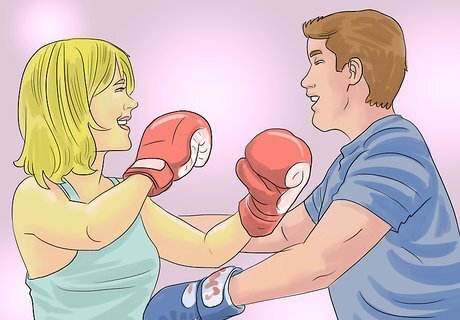
Add creative and interesting things to your relationship. Most people don’t mind doing “the same old thing” over and over again for a period of time, but it can get boring if it lasts too long. Most relationships need to be “stirred up” every now and again with something new, interesting and fun. This can be anything from taking a night off and going on a date, or spending a weekend together without cell phones and the internet. Regardless of whether your partner instigates any new and interesting things in your relationship, you should do this regularly. To make the events even more interesting, relate them to something your partner loves. Should the relationship not work out, your ex-partner is going to remember you as the person who was always coming up with new and interesting things to do and keeping the relationship fun and exciting. This is definitely something that would make you “the one that got away."

Recognize that you do not need to change who your partner is. In many relationships one or both partners attempt to change the other partner somehow. Society often makes jokes of this, especially when it comes to women changing men. Unfortunately it doesn’t really work that way. You may be able to influence small changes in your partner (e.g. saying please and thank you, holding the door open for you, etc.) but you are never going to be able to change who they really are — nor should you want to. You should be with your partner because you like (or love) them for who they are, what they stand for, how they act, etc. Don’t go into a relationship thinking your partner will be perfect if you can only make a few changes to them. If the relationship should end, your ex-partner is going to look back and realize you were the ONLY person who never attempted to make them change. If that doesn’t make you stand out as “the one who got away,” nothing will!
Getting Back Your Old Self
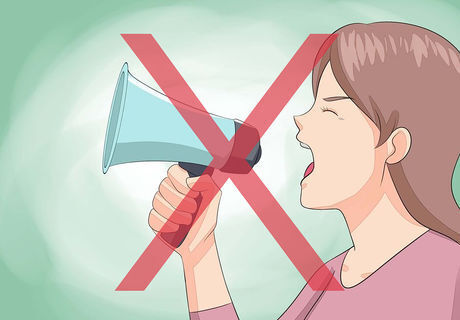
Avoid getting revenge. If you had someone break up with you, one of your first thoughts might be that of revenge, especially if you didn’t see the breakup coming. You may think that getting revenge on the person who broke up with you might make you feel better, or at the very least give you a sense of justice, but it won’t. Revenge will just end up making you feel worse. Don’t make any decisions after a break up until you are calm and rational. Give yourself time to heal before you ‘do’ anything. You most likely want revenge because you feel your trust has been broken, but getting revenge is not going to help to restore any of that trust.

Release any regret you have over the break-up. Whether you were the one who initiated the break-up, or someone broke up with you, you need to let go of any regret you may harbour. If someone broke up with you, you likely had little or no control over the event, so it is a waste of your time to dwell on what might have been. If you broke up with someone, you probably had a good reason. Remind yourself of that good reason when you start to feel regretful in order to demonstrate to yourself why you shouldn’t be upset you broke up with someone. Regardless of what happened, take the time to look at what weaknesses you might have that lead to the breakup. Whether you discover weaknesses or mistakes, realize that this is your change you learn from them. How can you do things differently in the future? Focus on things you can control and change. Try not to worry about the things out of your control.
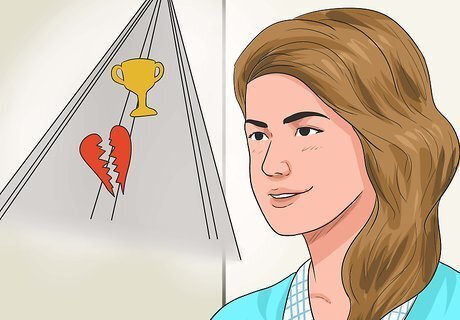
Think about the positive things that can come from the break-up. Whether you broke up with someone, or someone broke up with you, it is really easy to think of all the negative things that came from the breakup — things like feeling depressed and lonely. Try not to focus on these negative things, instead look at all the good and positive things that can (or have) come from the breakup. Write your feelings in a journal. Write specifically about the positive things that have happened because of the breakup. These positive things might be things you learned while in the relationship, or they may be the good reasons why the breakup was necessary. They can also include the positive outcomes that have resulted because of the breakup.

Go back to your pre-dating routine. Before you started to date this person you probably had a routine that you followed regularly. That routine was probably dropped or changed once you started dating. Now that you no longer have anyone else to worry about, get back into your routine. Start up your normal exercise routine again. Get back into the shape you were before the relationship. Spend more time working on extra work or home projects, anything you put aside during your relationship because you had no time. Plan and cook healthy meals regularly. Do things that will heal you. Schedule and attend any missed or delayed appointments such as the dentist or the eye doctor.

Concentrate on your personal priorities. When in a relationship you always have two people on the top of your priority list — you and your partner. Now that you’re no longer in a relationship you can concentrate on just taking care of yourself and making yourself the priority. Avoid sacrificing your time for others, make yourself the priority everyday.
Starting to Date Again

Realize you have time. There is absolutely no rush to start dating again. If you’ve constantly been in relationships for years, maybe it’s time to be alone for a while and concentrate on yourself. Not only do you need to be ready to start a new relationship, you need to know you have the time and energy to dedicate to both the relationship and your new partner. There’s nothing wrong with wanting a little bit longer if you aren’t sure.

Know what you’re looking for in a new partner. While it may be tempting to jump back into the dating market again without a lot of thought, you’ll find yourself having more success if you take some time to think about what you want first. Think about what you do and don’t want in a new partner. Think about the type of relationship you want to have with a new partner.

Make new friends. When it’s time for you to start dating again, start by making some new friends. You never know if one of your new friends may one day be your new partner. When looking for new friends, look for the good in people. Don’t judge new friends on the way your old friends or partners once treated you.
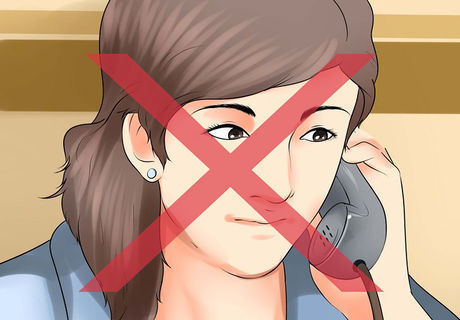
Avoid contacting your ex-partner. It may be tempting to get back into the dating world by contacting your ex-partner and seeing if you can reconcile. If you are to be the one who got away, you can’t be the one who is chasing someone else. Instead you want to be the one who is chased.
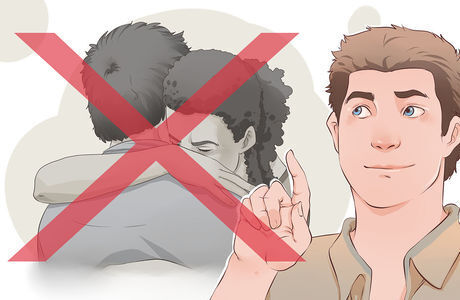
Refrain from talking about your ex-partners to new partners. If and when you start to date again, don’t spend any of your time with your new partner talking about any old partners. They’re in the past, so keep them there. Your new partner will not appreciate you focusing on someone else, instead focus on your new partner. Spend your time learning about your new partner. Ask questions, tell funny stories, talk about family or work or school, etc. If you new partner asks about any of your old partners, don’t spend your time complaining about all the bad things you remember. Stick to the interesting stories and basic facts.



















Comments
0 comment